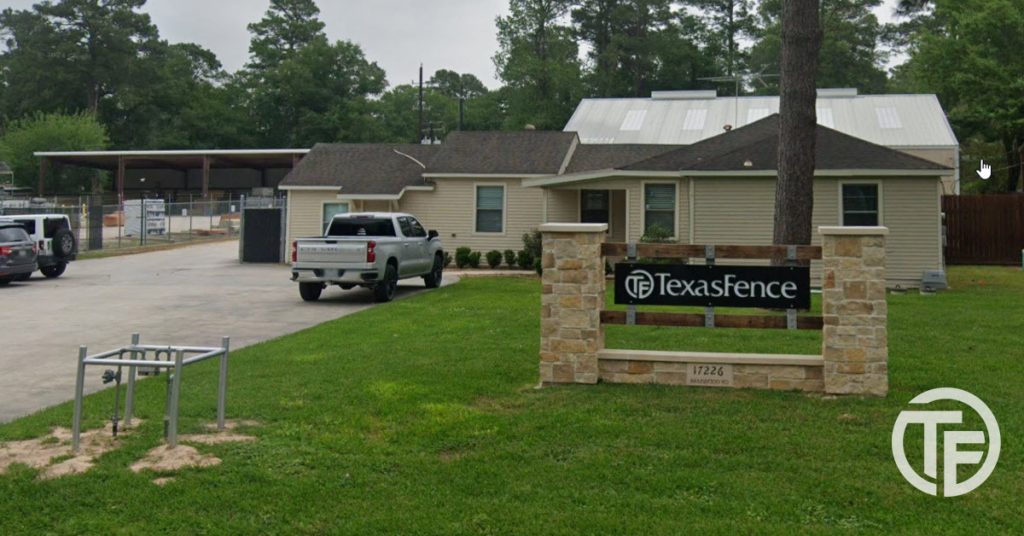Choosing the Right Fence Contractor: Key Questions to Ask
When we’re looking to install a new fence, selecting the right fence contractor can make the difference between a lasting investment and an ongoing headache. We’ve seen countless examples of projects that went wrong simply because homeowners didn’t know what questions to ask during the selection process. From verifying proper licensing to understanding warranty terms, there’s a thorough checklist of vital points we need to cover before signing any contracts. Let’s explore the essential questions that’ll help us navigate the fence contractor selection process and protect our interests.

Key Points
- Ask for their contractor’s license number and request current copies of general liability and workers’ compensation insurance certificates.
- Request photos and references from recent fence installations similar to your project requirements.
- Get a detailed written estimate that includes material specifications, labor costs, timeline, and warranty information.
- Verify the fence contractor experience with your preferred fencing material and ask about manufacturer warranties.
- Discuss specific project start and completion dates, including potential weather delays and permit requirements.
License and Insurance Status
When checking out potential fence contractors, verifying their license and insurance status should be at the top of your priority list. We recommend requesting both their contractor’s license number and proof of current insurance coverage. A valid license indicates they’ve met local requirements and possess the necessary expertise, while proper insurance safeguards you from liability if accidents occur during installation.
Don’t hesitate to contact your state’s licensing board to confirm their credentials are in good standing. Look for both general liability insurance and workers’ compensation coverage. The liability insurance should cover at least $1 million in damages, while workers’ comp guarantees you’re not responsible if workers are injured on your property. Always get written proof of these documents and verify they’ll be current throughout your project’s duration. Avoid contractors who request a 100% upfront deposit as this is a major warning sign of potential fraud.
Fence Contractor Past Project Portfolio
Since past performance often predicts future results, examining a fence contractor’s portfolio of completed projects should be an essential part of your evaluation process. We recommend asking to see photos of their recent installations, particularly ones similar to what you’re planning. Look for consistency in their workmanship, attention to detail, and how they’ve handled challenging terrain or unique design requirements.
Don’t hesitate to request references from previous clients who’ve had similar fencing projects completed. When reviewing these projects, we suggest focusing on fence alignment, post settings, gate functionality, and overall aesthetic appeal. A reputable contractor will proudly showcase their work and provide multiple examples that demonstrate their expertise, versatility, and commitment to quality craftsmanship. Quality contractors like Texas Fence demonstrate their reliability through BBB A+ ratings and extensive project portfolios dating back to their establishment.
Material Quality and Options
A reputable fence contractor should offer a diverse selection of high-quality materials that match both your aesthetic preferences and practical requirements. We recommend asking specific questions about their material sourcing and whether they maintain relationships with trusted suppliers who provide warranties on their products.
Let’s be sure to inquire about available options in wood grades, metal gauges, vinyl thickness, and composite materials. A knowledgeable fence contractor will explain the pros and cons of each material choice, including maintenance requirements, longevity, and weather resistance for our climate. They should also discuss material pricing tiers and help us understand the long-term value proposition of premium materials versus standard options.
Don’t hesitate to request material samples and ask about the grade specifications – quality contractors will readily provide this information. Chain link fences offer an economical solution while maintaining durability and requiring minimal upkeep.
Written Estimate Details
Before signing any agreement, we should expect a detailed written estimate that outlines the complete scope of work and all associated costs. The estimate needs to include material specifications, exact fence dimensions, gate locations, hardware details, and precise installation methods.
We’ll want to see itemized costs for labor, materials, permits, and any site preparation work.
Let’s guarantee the estimate addresses potential challenges like slope corrections, tree root considerations, or utility line accommodations. It should also specify the project timeline, payment schedule, and warranty terms.
We’ll want clear documentation of who’s responsible for obtaining permits and utility locates. The more detailed our written estimate, the better protected we’ll be from unexpected costs and the smoother our fencing project will progress.
Requesting proof of a contractor’s industry experience can help ensure proper installation and prevent costly mistakes down the line.
Project Timeline and Schedule
Understanding when your fence installation will begin and end is essential for proper project planning. We recommend asking your contractor for specific start and completion dates, including how many actual workdays the project will require. Guarantee these dates are included in your written contract.
It’s important to discuss potential delays like weather conditions, permit processing times, or materials availability that could impact the timeline. We also suggest asking about the contractor’s current project load and crew size to verify they can meet your desired schedule.
Have them clarify their daily work hours and whether they’ll need continuous access to your property. Don’t forget to confirm their policy for communicating any schedule changes or unexpected delays during the installation process. Professional companies like Texas Fence experts can typically complete most residential fence installations in just one day.
Local Code Compliance
We’ll need a fence contractor who thoroughly understands local building codes and permit requirements before starting any installation. A qualified professional should demonstrate knowledge of specific zoning laws, height restrictions, property line setbacks, and material regulations that apply in our area. Local ordinances vary considerably between municipalities, so working with someone who maintains current knowledge of our community’s specific requirements will help avoid costly violations and delays. The contractor should know that some areas require fences to maintain residential development standards set by local developers and enforced through city councils.
Permit Knowledge Required
A reputable fence contractor must demonstrate thorough knowledge of local building codes and permit requirements. We’ll want to guarantee they’re familiar with the specific permits needed for our area and can handle the entire application process. They should confidently explain which permits are necessary, their associated costs, and typical processing times.
They should also be able to identify potential obstacles like utility lines or easements that could impact permit approval. When we discuss our project, they should automatically bring up permit-related considerations and include these costs in their written estimate. This knowledge helps prevent delays and guarantees our fence installation proceeds smoothly and legally.
Let’s verify that our fence contractor knows about setback requirements, height restrictions, and any homeowner association guidelines that might affect our fence installation.
Local Regulations Matter Most
Building codes and regulations vary considerably between municipalities, making local compliance a cornerstone of proper fence installation. We’ll want to guarantee our fence contractor knows the specific requirements for our area, as violations can lead to costly corrections or fines.
| Regulation Type | What to Verify |
|---|---|
| Height Limits | Maximum allowed height by zone |
| Setbacks | Required distance from property lines |
| Materials | Approved fencing materials |
| Permits | Required documentation |
| HOA Rules | Community-specific restrictions |
When evaluating contractors, we should ask about their familiarity with our local codes. The best professionals maintain relationships with municipal offices and stay current on regulation changes. They’ll also handle permit applications, coordinate utility marking, and ascertain proper boundary surveys before breaking ground. This knowledge directly impacts project success and our long-term satisfaction.
Warranty Coverage
Understanding warranty coverage should be a critical factor when selecting a fence contractor. We need to carefully evaluate what’s protected, for how long, and under what conditions. A comprehensive warranty demonstrates a contractor’s confidence in their work and commitment to customer satisfaction.
Material defects coverage – Guarantee the warranty specifies which fence components are covered and for what duration
Labor warranty – Verify if installation work is protected and whether there’s a separate timeframe from materials
Transferability terms – Check if the warranty remains valid if you sell your property
Exclusions and limitations – Review specific conditions that might void coverage, such as weather damage or improper maintenance
When reviewing warranties, we recommend getting all terms in writing and asking for clarification on any ambiguous language. Remember, the strongest warranties come from established contractors who’ll be around to honor them. Our 5-year material warranty provides comprehensive protection for all fence types including wood, vinyl, chain-link, aluminum, and wrought iron installations.
Payment Terms and Structure
Clear payment terms and structures protect both homeowners and contractors throughout the fence installation process. We recommend asking potential contractors about their payment schedule, including deposit requirements, progress payments, and final payment terms. Most reputable contractors will request a deposit of 20-30% to secure materials and labor, with additional payments tied to specific project milestones.
Before signing any contract, we need to confirm it clearly outlines the complete payment structure, including the total project cost and any potential additional charges. Let’s verify acceptable payment methods, whether they offer any discounts for cash payments, and if they maintain a lien release process. It’s also vital to never pay the full amount upfront and to withhold final payment until we’re completely satisfied with the completed fence installation. Some contractors like Texas Fence offer financing options available with zero down payment and 18-month interest-free terms for qualified buyers.
Post-Installation Support
We need to carefully examine a fence contractor’s post-installation support offerings, starting with their warranty coverage and emergency repair protocols. An extensive/expansive/detailed warranty should cover both materials and workmanship, while clearly outlining claim procedures and response times for urgent repairs. Partnering with a contractor that provides long-term maintenance benefits helps protect your investment and reduces costly repairs over time. Installing a fence is just the beginning of our relationship with the contractor, so we’ll want to understand their available maintenance service plans that can help extend our fence’s lifespan.
Warranty Coverage and Terms
A thorough warranty from your fence contractor serves as an essential safeguard for your investment. When reviewing warranty coverage, we recommend examining both materials and workmanship guarantees to ascertain comprehensive protection for your new fence.
Confirm the length of coverage for both labor and materials, as these often have different durations. Get details on what specific issues are covered, such as warping, rotting, peeling, or structural defects. Understand the claim process, including response times and documentation requirements. Review any maintenance requirements that could affect warranty validity.
We’ll help you understand the fine print and ensure you’re obtaining meaningful coverage, not just marketing promises. Remember that the best warranties combine reasonable duration with clear terms and straightforward claim procedures that protect your interests.
Emergency Repair Protocol
Despite installing a fence with utmost care, unexpected damage can occur from severe weather, accidents, or vandalism. Let’s guarantee your chosen contractor has a solid emergency repair protocol to address urgent issues promptly.
| Response Time | Service Level | Cost Structure |
|---|---|---|
| 24/7 Hotline | Basic Repairs | Fixed Rate |
| Same-Day | Structural Fixes | Time & Materials |
| Next-Day | Full Replacement | Insurance Claim |
We recommend confirming whether your fence contractor offers 24/7 emergency support and their typical response times. Ask about their after-hours contact procedures and additional costs for emergency services. Understanding their repair capabilities is vital – some contractors maintain dedicated emergency response teams, while others might have limited availability. Also verify if they stock common replacement materials and parts for your specific fence type.
Maintenance Service Plans
Regular maintenance extends your fence’s lifespan and protects your investment, making service plans an essential consideration when selecting a contractor. We recommend discussing maintenance options before finalizing your fence installation contract, as all-encompassing service plans often include valuable benefits at discounted rates.
- Annual inspections to check for loose hardware, post stability, and signs of wear
- Seasonal cleaning and protective treatments to prevent rust, rot, or weather damage
- Priority scheduling for repairs and emergency services
- Documentation of maintenance history for warranty purposes
When evaluating service plans, we’ll help you understand the coverage details, frequency of inspections, and associated costs. A reliable contractor should offer flexible maintenance packages that align with your fence type, local climate conditions, and budget requirements. Remember, preventive care through structured maintenance plans typically costs less than reactive repairs.
Frequently Asked Questions
How Much Noise Will the Fence Installation Process Make?
We’ll typically use power tools like post hole diggers, drills, and saws during installation, creating moderate noise levels similar to construction work. It’s best to notify your neighbors beforehand.
Can You Install a Fence During Winter Months?
We can install fences during winter, though weather conditions like frozen ground and snow may affect scheduling. We’ll work with you to choose ideal days and guarantee proper installation methods.
Will My Existing Landscaping Be Damaged During Installation?
We’ll protect your landscaping by carefully marking work areas, using specialized equipment, and planning our dig patterns. Some minor disturbance may occur, but we’ll minimize impact and restore any affected areas.
Do You Remove and Dispose of the Old Fence?
We’ll remove and dispose of your old fence as part of our complete service package. We handle all debris removal and guarantee your property is left clean and ready for the new installation.
How Deep Will You Dig the Fence Posts?
We’ll dig your fence posts to a minimum depth of 24-30 inches, depending on your local frost line and soil conditions. Our team guarantees proper depth for maximum stability and longevity.
Takeaway
When we’ve done our homework on fence contractors, we’re better positioned to make a confident choice. By examining licenses, insurance, portfolios, and materials while getting detailed estimates and warranty terms in writing, we’re protecting our investment. Let’s remember that proper vetting of contractors now will save us time, money, and potential headaches later. We’re making an investment that’ll enhance our property for years to come.








